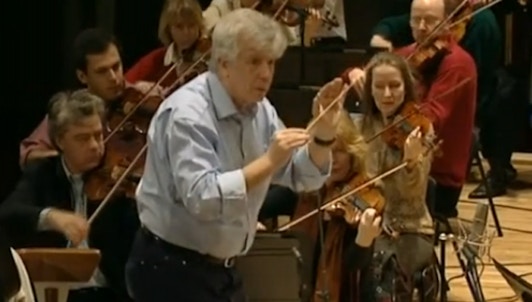Born in Berlin in 1929, Christoph von Dohnányi progressively built up a career to match his rare and demanding talent. Far from rapidly acquired spotlights, Dohnányi submitted himself to the demands of opera where his art achieved incomparable certainty and precision. His musical initiation came from a family with a rich and strong musical tradition, (his grandfather, Ernő von Dohnányi was a renowned pianist and composer close to Bartok and who also taught Solti).
Despite this prestigious heritage, Dohnányi did not automatically choose a future in music. Firstly, the war profoundly affected the young man whose father was assassinated by the Nazis. However, after studying law, Solti’s example influenced Dohnányi back to a musical career. Two encounters were to be decisive: the advice he received from Fernc Fricsay and then in 1952, when he met Leonard Bernstein at Tanglewood.
A meticulous apprenticeship of the trade was to begin. In 1957, Christoph von Dohnányi was appointed musical director of the Lübeck Opera. Thereafter he held posts at Cassel, (1963), Frankfort, (1968) and the Hamburg Opera in 1975. He then became Director of Music at the Cleveland Orchestra in 1984. In 2004, he was appointed permanent conductor of the Paris Opera. Far from allowing his repertoire to be dictated to him, Dohnányi confronts difficult modern works, (Schoenberg, Bartok, Schnittke and Lutoslawsky) and reveals the sometimes tenuous links between yesteryear and contemporary composers.
Christoph von Dohnányi summed up to Robert Parienté his appreciation of the difficulties and dangers inherent in the responsibilities of orchestral conducting. “Conducting”, he asserted, “is a strange profession made up of multiple contradictions: it is in fact an activity where truth lies next to its contrary.” The orchestra pit, within the tradition of the most illustrious choirmasters including this exceptional conductor, was certainly the most effective place for musical apprenticeship where masterpieces may be treated with maximum integrity.

